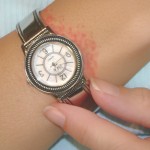 Food allergies are among the most pronged allergies in human. People get allergies to certain type of nuts, vegetables, oil, meat and even sea foods. Yes! Seafood’s, there are many who get various kinds of allergies after eating seafood’s like shell fish, shrimps and even tuna. It is been noticed that over many millions of individuals face out food allergies after having fish like shrimps. It is actually a type of shellfish, a marine animal with a shell. If you develop any kind of skin rash after having them, then it’s the sign of allergic reactions from the food and is not to be ignored.
Food allergies are among the most pronged allergies in human. People get allergies to certain type of nuts, vegetables, oil, meat and even sea foods. Yes! Seafood’s, there are many who get various kinds of allergies after eating seafood’s like shell fish, shrimps and even tuna. It is been noticed that over many millions of individuals face out food allergies after having fish like shrimps. It is actually a type of shellfish, a marine animal with a shell. If you develop any kind of skin rash after having them, then it’s the sign of allergic reactions from the food and is not to be ignored.
Cause of getting Allergy to Shrimp?
Allergy can get in your body when the immune response is abnormal. Shrimp contains certain proteins that may wrongfully get recognized by your body’s immune system as being harmful. Thus your immune system triggers out an antibodies, that attack the protein called tropomyosin. The next time you are exposed to the shrimp protein, your immune system releases histamine, the substance responsible for development of skin rash and other symptoms on your skin.
Various Symptoms of Shrimp Allergy
One can get allergy reactions within few hours after having shrimp in your food. Actually it is seen that the reactions to the shrimp can get varied from person to person depending upon the immune system of the person. The milder ones are just a small skin rash and some itching sensation. And the stronger ones could be hives and swelling of the face, lips, mouth and tongue. If you are highly allergic, you may also begin to wheeze and feel like your throat is closing, making it difficult to breathe or swallow. This is a serious situation that requires immediate medical attention. If you develop a skin rash after eating shrimp, do not eat it again until you have confirmed the allergy. Allergic reactions can become progressively worse after each exposure.
Precautions to be taken while Eating Shrimp
It is seen that once you develop allergy to shrimp, then lifelong you get allergy to it. Therefore it is advisable that you avoid any contact with shrimp or shrimp products. One should read all food product labels, which must state if they contain shellfish. You must ask detailed questions when you eat out, especially at seafood restaurants; you will need to know what foods are prepared in proximity to the shrimp.



